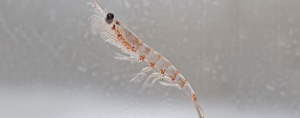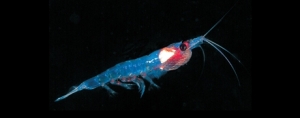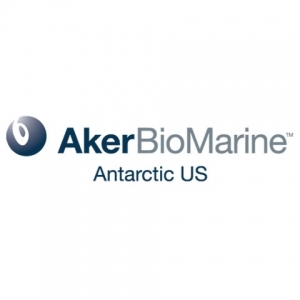03.15.13
Olympic Seafood AS, Fosnavåg, Norway, has unveiled its Eco-Collecting initiative that embodies the ecological stewardship surrounding production of the Rimfrost Krill Collection. Through the Eco-Collecting approach, commerce, technology and ecology are combined. The aim is to ensure catching krill does not affect the ecosystem negatively and that the industry as a whole operates responsibly.
While the approach has been in place since Olympic Seafood began krill operations, the new Eco-Collecting trademark seeks to better communicate the efforts put forth to responsibly produce the Rimfrost Krill Collection. The Eco-Collecting approach reflects Olympic’s underlying respect for krill born out of their Norwegian fishing traditions.
The Eco-Collecting approach follows the strict guidelines for krill fisheries in the Antarctic waters set out by the Commission for the Conservation of Antarctic Marine Living Resources (CCAMLR). CCAMLR monitors and controls all krilling activity in the Antarctic with a system of independent on-board observers who are always present to ensure compliance. CCAMLR knows exactly how much krill is caught, where, and when.
Complete 100% traceability of the krill is confirmed with the Eco-Collecting approach, which is also Friend of the Sea certified. Friend of the Sea is a non-governmental organization that works to conserve marine habitat and its resources.
Critical to the success of Olympic’s Eco-Collecting approach is the cutting edge technology onboard their ship Juvel, which is the newest krilling vessel on the seas. Juvel aims for low emissions, low energy use and low climate impact. Juvel utilizes acoustic sonar technology to precisely locate the krill enabling short trawl times and accurate collection. Only small quantities are needed and collection only occurs for immediate processing, and therefore no krill gets spoiled and goes to waste. The rapid enzymatic processing onboard swiftly preserves the intrinsic goodness of krill.
As part of their Eco-Collecting approach, Olympic Seafood hosts research expeditions to the Antarctic every second year to study various aspects of the ecosystem. In addition, during normal krill collecting voyages, the Juvel collects data and reports wildlife sightings and other useful observations to CCAMLR and research institutions in order to better understand the complex ecosystem of the Antarctic.
While the approach has been in place since Olympic Seafood began krill operations, the new Eco-Collecting trademark seeks to better communicate the efforts put forth to responsibly produce the Rimfrost Krill Collection. The Eco-Collecting approach reflects Olympic’s underlying respect for krill born out of their Norwegian fishing traditions.
The Eco-Collecting approach follows the strict guidelines for krill fisheries in the Antarctic waters set out by the Commission for the Conservation of Antarctic Marine Living Resources (CCAMLR). CCAMLR monitors and controls all krilling activity in the Antarctic with a system of independent on-board observers who are always present to ensure compliance. CCAMLR knows exactly how much krill is caught, where, and when.
Complete 100% traceability of the krill is confirmed with the Eco-Collecting approach, which is also Friend of the Sea certified. Friend of the Sea is a non-governmental organization that works to conserve marine habitat and its resources.
Critical to the success of Olympic’s Eco-Collecting approach is the cutting edge technology onboard their ship Juvel, which is the newest krilling vessel on the seas. Juvel aims for low emissions, low energy use and low climate impact. Juvel utilizes acoustic sonar technology to precisely locate the krill enabling short trawl times and accurate collection. Only small quantities are needed and collection only occurs for immediate processing, and therefore no krill gets spoiled and goes to waste. The rapid enzymatic processing onboard swiftly preserves the intrinsic goodness of krill.
As part of their Eco-Collecting approach, Olympic Seafood hosts research expeditions to the Antarctic every second year to study various aspects of the ecosystem. In addition, during normal krill collecting voyages, the Juvel collects data and reports wildlife sightings and other useful observations to CCAMLR and research institutions in order to better understand the complex ecosystem of the Antarctic.
















